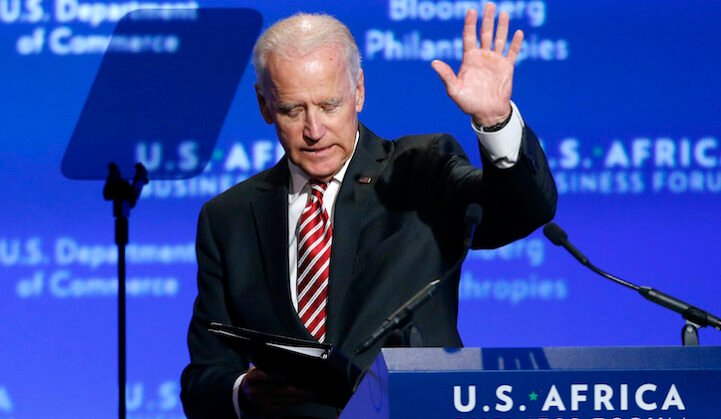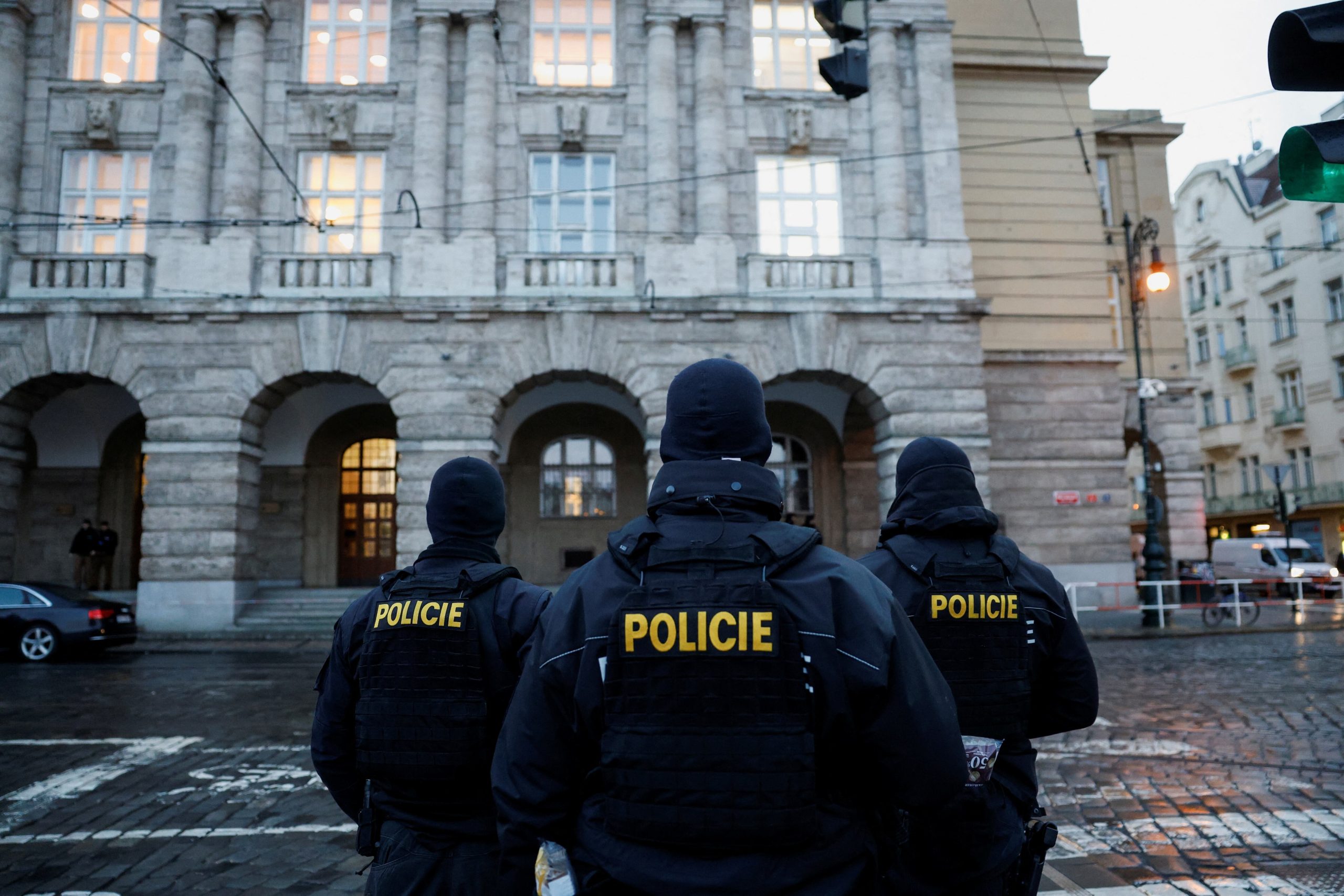European Centre for Counterterrorism and Intelligence Studies-Germany and Netherlands
What Can Africa Expect From the Biden Administration on Security Issues?
Dr. Mohammed Salah Djemal
Researcher at European Centre for Counterterrorism and Intelligence Studies
After the “diplomatic damage” that the Former president D.Trump had caused, and the image of the United States that has been tarnished on the international scene, in particular that the USA is considered the only superpower in the international system. The former president’s “recklessness” almost put the United States of America on the danger line.
US President-Elect Joe Biden has vowed to restore America’s leadership role in the world by reversing the unilateralism of the Trump administration and refocusing on longstanding international alliances. He says his administration will elevate diplomacy and lead by the “power of example,” rather than the “example of power.” Biden has inherited a situation in which allies are questioning US credibility, with relations between Washington and capitals around the world fraught.
US-Africa Relations : Continuity or Intensification?
Despite dire predictions, the Trump Administration’s overall policy toward Africa represented continuity. Foreign aid continued; skilled diplomats were appointed and deployed to resolve conflicts; and the signature Africa programs of past presidents remained unabated. The administration launched a trade program, and President Trump himself intervened to mediate a brewing conflict in east Africa. Still, Trump fought to withdraw troops from Africa, publicly positioned the continent as a field for “great power competition”, and infamously referred to African nations as “shithole countries.”1
Biden published a document on U.S.-Africa relations, as part of his campaign, while it undertakes to execute the content of this document.
The campaign document promises a change in tone, the restoration of “mutually respectful engagement,” and the revival and reinvigoration of diplomacy. The implication is no more disparaging presidential tweets. It reaffirms American support for African democracy and economic growth. It specifically endorses a continuation of President Obama’s Young African Leaders Initiative and looks for diversity in the U.S. diplomatic service. These goals, too, can be largely achieved through presidential executive authority.2
The celebrations in Africa of Trump’s loss are understandable because of his lack of interest in African issues. Although this view is somewhat exaggerated given the Trump administration’s overall reduction of the US’ role in global and multilateral affairs, many commentators have emphasized Trump’s denigration of the continent. Against this backdrop, most African public are prepared for a US administration that treats Africa with civility, certainty, dignity and respect. Similarly, most African ruling elites are looking forward to invitations to Washington that resonate very well with domestic audiences. There are already calls for a high-level Africa-US summit along the lines of the one hosted by former President Barack Obama in 2014 to underscore the seriousness the new administration will devote to African affairs.3
Counterterrorism is the Key !
America has a longstanding military footprint in Africa. Since 2001 the continent has been a focal point for US military presence, especially in the ‘global war on terror’. In fact, since the 9/11 terrorist attacks, the US military has built a sprawling network of outposts in more than a dozen African countries. Ironically, during the same period, the activities of terror groups on the continent have increased. This raises doubts about the relevance of a continued US military presence for counter-terrorism in Africa. Perhaps this will be a point of reflection for Biden’s administration especially as 2021 marks two decades since the 9/11 attacks.4
In East Africa, the Trump administration recently removed all U.S. troops from Somalia as part of a global troop reduction. Thus, the Biden administration will have to decide whether to continue the drawdown globally or in Africa. President Biden will likely seek Secretary Austin’s advice on troops in Kenya, who have continued airstrikes in Somalia and are somewhat less vulnerable to al-Shabaab attacks there. However, the Biden administration may consider using its forces in Kenya to also launch operations or conduct surveillance in Mozambique, if not also Congo, which also hosts an ISCAP branch on its territory. Various experts have raised concern that ISCAP’s recent evolution and insurgent successes resemble those of Boko Haram previously. As a member of the UN Security Council, Kenya is also likely to renew a call for the UN to designate al-Shabab under the terrorism sanctions regime, reigniting a contentious debate about the impact of counterterrorism measures on humanitarian action.5
Facing major challenges in the fight against terrorism in Africa, Biden’s administration may have little time to redeploy U.S. troops in Africa after the trump administration’s decline. Another challenge is China, which has also become integrated in counter-terrorism in Africa through the United Nations, as part of the security and military accompaniment of some African armies and their support for training.
The Biden administration’s new approach to Africa will certainly be to reform what the Trump administration has neglected, especially in reactivating AFRICOM, which we no longer hear about in the Trump era. Countering terrorism for the United States is the old-new key to reviving relations with Africa, so that the Biden administration, this time, will see Africa as a valuable opportunity that must be brought back to the American lap in the face of growing Chinese, Russian, and even Turkish influence in the region.
Endnotes:
1- Herman.J Cohen, Africa : How Climate Change, Aid nad Security Can Help President Biden Re-Engage Africa. https://www.fpri.org/article/2021/01/africa-how-climate-change-aid-security-can-help-president-biden-re-engage-africa/
2-John Campbell, The Biden Administartion’s Approach to Africa. https://www.cfr.org/blog/biden-administrations-approach-africa
3-Gilbert M. Khadiagala, Africa’s wish list for the Biden Administration : Expectations VS reality. https://www.africaportal.org/features/africas-wishlist-biden-administration-expectations-vs-reality/
4-Akinola Olojo, Joe Biden and Counter-terrorism in Africa: more of the same ? https://issafrica.org/iss-today/joe-biden-and-counter-terrorism-in-africa-more-of-the-same
5- Countering Terrorism and Insecurity in Sub-Saharan Africa: Opportunities for the Biden-Harris Administration. https://thesoufancenter.org/intelbrief-2021-january-25/
All Rights are Reserved to European Centre for Counterterrorism and Intelligence Studies




